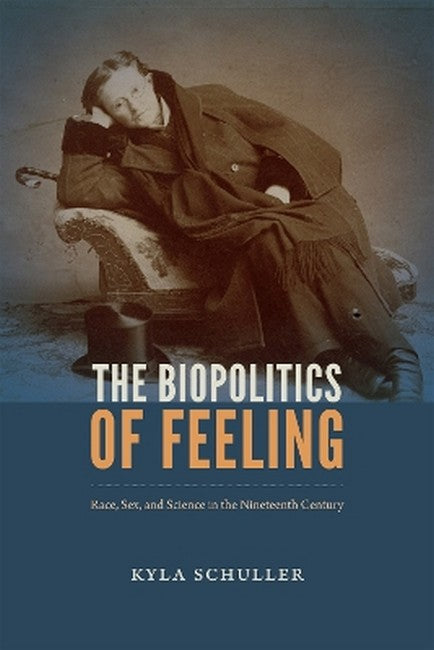Kyla Schuller is Assistant Professor of Women's and Gender Studies at Rutgers University, New Brunswick.
Request Academic Copy
Please copy the ISBN for submitting review copy form
Description
Acknowledgments ix Introduction. Sentimental Biopower 1 1. Taxonomies of Feeling: Sensation and Sentiment in Evolutionary Race Science 35 2. Body as Text, Race as Palimpsest: Frances E. W. Harper and Black Feminist Biopolitics 68 3. Vaginal Impressions: Gyno-neurology and the Racial Origins of Sexual Difference 100 4. Incremental Life: Biophilanthropy and the Child Migrants of the Lower East Side 134 5. From Impressibility to Interactionism: W. E. B. Du Bois, Black Eugenics, and the Struggle against Genetic Determinisms 172 Epilogue. The Afterlives of Impressibility 205 Notes 215 Bibliography 247 Index 271
"[Schuller's] terminology here may act as a springboard for additional theorizations of race. . . . An ambitious, conscientious history." - Joshua Falek (Cultural Studies) "The importance of this book to nineteenth-century studies cannot be understated: it fundamentally rewrites the history of sentimentalism, an affective and cultural formation that dominated norms of comportment and embodiment across the period. . . . " - Kyla Tompkins (American Quarterly) "The Biopolitics of Feeling takes a refreshingly head-on approach to the historical entanglement of race and sex in the United States. . . Stunningly convincing . . . Readers will find an abundant resource of theoretically informed readings of postbellum and Progressive Era science and literature throughout the study, but they will be also unable to ignore Schuller's urgent warning about feminism's embeddedness in the machinations of biopower." - Britt Rusert (Catalyst) "Impressibility and sentimentalism combine in this book to form a rubric assessing a broad and fascinating archive. . . . Schuller offers a broad view of how nineteenth-century Americans were given repeated exposure to the logic of impressibility and affective fitness, to the point where both became unconscious components of civic life." - Sheila Liming (Legacy) "An impressive synthesis of historical and theoretical work. . . . A well-documented critique of society and valuable contribution to scholarship on biopolitics that addresses persistent issues that can spark intellectual discussions. The book would be useful for scholars across disciplines such as Philosophy, Health Studies, Critical Race Studies, Ethnic Studies and Women, Gender and Sexuality Studies." - Rosemary Onyango (Journal of International Women's Studies)

